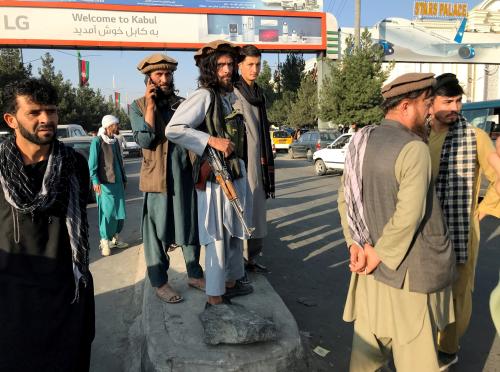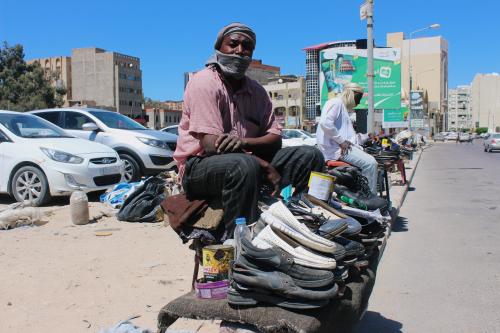2023
From Libya to Japan to the Ivory Coast, the protection of people from oppressive governments, disasters and conflict has moved to the top of the international agenda. Humanitarian actors are devoting more energy and effort to incorporate protection into their relief efforts. Protection of civilians has become central to United Nations peacekeeping operations and the UN General Assembly has endorsed the principle that the international community has the “responsibility to protect” people when states cannot or will not do so, yet the international system remains unable to protect millions of people in Somalia, the Democratic Republic of the Congo, Haiti and many other places.
On April 11, the Project on Internal Displacement at Brookings hosted the launch of The Politics of Protection – The Limits of Humanitarian Action (Brookings Press, 2011), written by Co-Director Elizabeth Ferris. In her book, Ferris explores the ways protection has been defined and applied by different actors and the development of the protection regime. Anne Richard, vice president of government relations and advocacy for the International Rescue Committee joined Ferris for a discussion of these issues. Senior Fellow Michael O’Hanlon, director of research for Foreign Policy at Brookings, provided introductory remarks and moderate the session.
After the program, the speakers took audience questions.
The Politics of Protection
Agenda
-
April 11
-
Introduction and Moderator
 Michael E. O’Hanlon Director of Research - Foreign Policy, Director - Strobe Talbott Center for Security, Strategy, and Technology, Co-Director - Africa Security Initiative, Senior Fellow - Foreign Policy, Strobe Talbott Center for Security, Strategy, and Technology, Philip H. Knight Chair in Defense and Strategy @MichaelEOHanlon
Michael E. O’Hanlon Director of Research - Foreign Policy, Director - Strobe Talbott Center for Security, Strategy, and Technology, Co-Director - Africa Security Initiative, Senior Fellow - Foreign Policy, Strobe Talbott Center for Security, Strategy, and Technology, Philip H. Knight Chair in Defense and Strategy @MichaelEOHanlon -
Featured Speakers
 Elizabeth Ferris Former Brookings Expert, Research Professor, Institute for the Study of International Migration - Georgetown University @Beth_Ferris
Elizabeth Ferris Former Brookings Expert, Research Professor, Institute for the Study of International Migration - Georgetown University @Beth_Ferris
-

